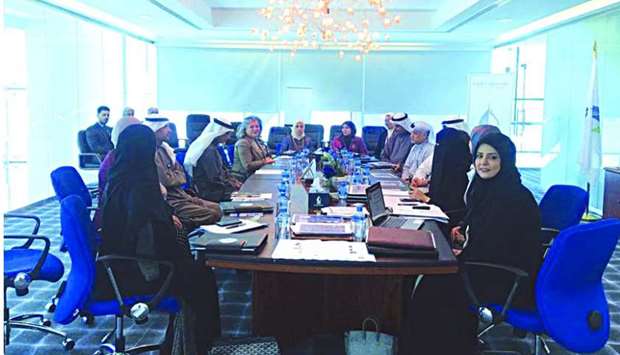Assistant Undersecretary for Educational Affairs at the Ministry of Education and Higher Education, Fawzia al-Khater presented the Qatari experience in following the STEM system in schools, during a panel discussion in Kuwait's Gulf University for Science and Technology (GUST), attended by a number of education and scientific research officials.
STEM is a curriculum based on the idea of educating students in four specific disciplines, science, technology, engineering, and mathematics, in an interdisciplinary and applied approach.
Al-Khater discussed Qatar's experience in building the curriculum of this system and the mechanism of its implementation in schools, how to manage the school, lessons learned from the experience, difficulties and ways to address it, as well as the training mechanism for teachers and the school administration of the STEM curriculum.
She also touched on about the methodology of the system as an educational input that was developed to prepare students of general education for university and postgraduate studies in the fields of science, technology, engineering and mathematics, and joining a university specialisation linked to these four sciences.
Al-Khater said that STEM's teaching methodology aims to enhance the inquiry, verification, logical thinking, collaborative skills of students and to teach them to work as a team.
As well as the development of the program in an integrated manner enhances the understanding of educational curricula in relation to these fields, which achieves the quality of education required and provides the labor market with qualified workers in the field of advanced technology.
She added that STEM is a multidisciplinary approach in which students learn and apply the concepts of science, technology, engineering, and mathematics by their very nature and cross-reference the definition of each discipline or field related to this science.
Al-Khater discussed Qatar's experience in building the curriculum of this system and the mechanism of its implementation in schools, how to manage the school, lessons learned from the experience, difficulties and ways to address it, as well as the training mechanism for teachers and the school administration of the STEM curriculum.
She also touched on about the methodology of the system as an educational input that was developed to prepare students of general education for university and postgraduate studies in the fields of science, technology, engineering and mathematics, and joining a university specialisation linked to these four sciences.
Al-Khater said that STEM's teaching methodology aims to enhance the inquiry, verification, logical thinking, collaborative skills of students and to teach them to work as a team.
As well as the development of the program in an integrated manner enhances the understanding of educational curricula in relation to these fields, which achieves the quality of education required and provides the labor market with qualified workers in the field of advanced technology.
She added that STEM is a multidisciplinary approach in which students learn and apply the concepts of science, technology, engineering, and mathematics by their very nature and cross-reference the definition of each discipline or field related to this science.

